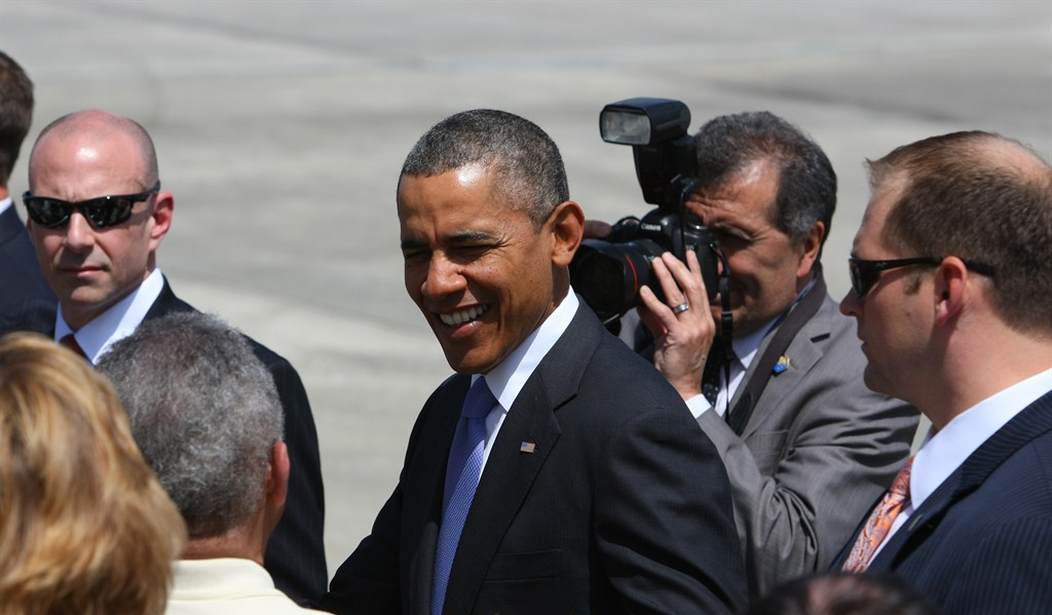If you take an economics course, you may learn about the different events that can cause an increase in workers' pay. The demand for the product a worker makes may rise, causing the demand for workers to go up. The supply of workers may decline, causing employers to bid up wages to keep the ones they have.
But there's one event the textbooks don't cover: The president of the United States gives you a raise. Many workers will get news to the effect that he has done just that. But it's not as simple as it sounds.
Barack Obama thinks American companies are not paying their employees as much as they deserve. A White House fact sheet asserts that he intends to "make sure millions of workers are paid a fair wage for a hard day's work."
So he's proposed an increase in the minimum wage, which Congress is not likely to approve. He's also decided that more workers are entitled to time-and-a-half pay when they work overtime -- a decision he can implement without legislation.
A 1938 law stipulates that hourly employees who put in more than 40 hours a week have to get a 50 percent premium for the additional hours. Under current rule, those making less than $455 a week are automatically covered, even if they are on salary. The president, however, plans to raise that threshold to expand the number of salaried workers who are guaranteed extra compensation.
Well, not quite guaranteed. The president can insist that workers putting in overtime get paid more. But he can't make employers provide overtime.
If a salaried employee who clocks 50 hours a week suddenly becomes eligible for extra pay for that extra 10 hours, the affected company can cut back those hours to avoid the boost. So there's no assurance that anyone will get more money out of this deal.
Recommended
Some employees, it's safe to predict, will earn less. Why? Because they will lose their jobs. A worker who is worth employing for 50 hours a week at a salary of, say, $600 a week may not be worth employing for the same salary and 20 percent less work. The employer may eliminate the job because it costs the company more money than it provides in revenue.
From listening to Obama, you wouldn't know that no one is being forced to take these salaried positions. If a rational adult consents to work a certain number of hours for a certain amount of pay, why should the Labor Department veto the decision?
Currently, these workers can choose between hourly jobs that pay extra for overtime and salaried ones that don't -- according to their preferences, the job's other features and their alternatives. Under Obama's order, they will have one choice and only one choice.
To cope with the mandated pay increase, companies can simply make sure no one works more than 40 hours a week, hiring more workers to divide up the existing work. That's why the change will actually increase the total number of jobs, says economist Daniel Hamermesh of the University of Texas at Austin, who favors it.
"I think it's a job-creation measure," he told me. But even Hamermesh says the total amount of work done will go down rather than up, because the measure raises the price of labor to employers.
It obviously does. First, more workers will qualify for overtime pay. Second, employers who prefer to avoid that extra cost will have to incur a different one -- for recruiting, hiring, managing and providing benefits to the extra workers needed to cover the shortfall.
Economist Tim Kane of the Hoover Institution at Stanford University says the real choice companies will face is not about how to divide up the work among employees. "The tradeoff is not with different labor, it's with capital," he explains. When the government artificially raises pay, "workers at the margin get replaced with machines."
But Obama doesn't have to worry about being held accountable for the unwelcome consequences. The beneficiaries will be grateful to the president for his kind generosity. The victims, who will lose jobs or never be hired in the first place, will blame someone else.
That's why the move was irresistible to the White House. For politicians, meddling in markets means never having to say you're sorry.
























Join the conversation as a VIP Member